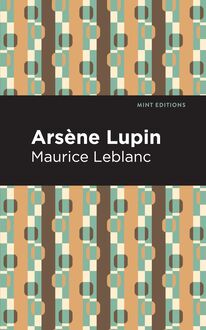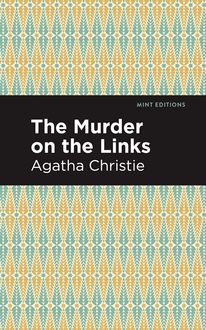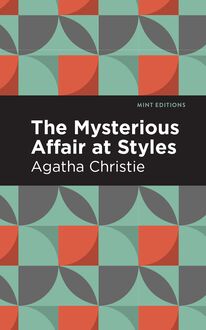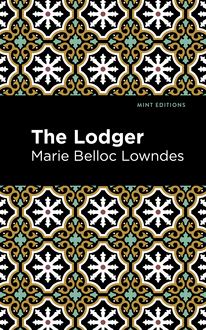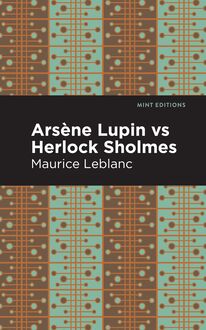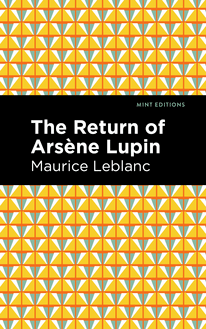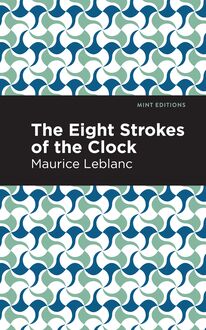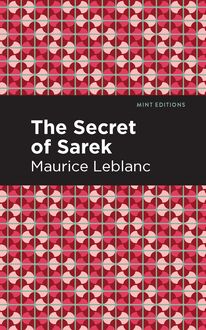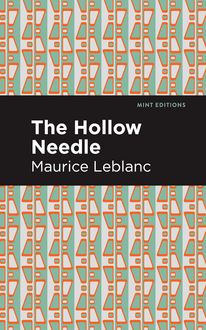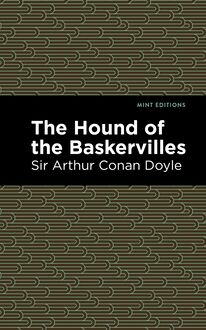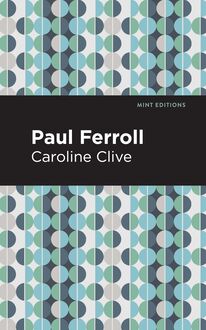-
 Univers
Univers
-
 Ebooks
Ebooks
-
 Livres audio
Livres audio
-
 Presse
Presse
-
 Podcasts
Podcasts
-
 BD
BD
-
 Documents
Documents
-
- Cours
- Révisions
- Ressources pédagogiques
- Sciences de l’éducation
- Manuels scolaires
- Langues
- Travaux de classe
- Annales de BEP
- Etudes supérieures
- Maternelle et primaire
- Fiches de lecture
- Orientation scolaire
- Méthodologie
- Corrigés de devoir
- Annales d’examens et concours
- Annales du bac
- Annales du brevet
- Rapports de stage
La lecture à portée de main
Vous pourrez modifier la taille du texte de cet ouvrage
Découvre YouScribe en t'inscrivant gratuitement
Je m'inscrisDécouvre YouScribe en t'inscrivant gratuitement
Je m'inscrisEn savoir plus
Vous pourrez modifier la taille du texte de cet ouvrage
En savoir plus

Description
The Haunted Bookshop (1919) is a novel by Christopher Morley. Although less popular than Kitty Foyle (1939), a novel adapted into an Academy Award-winning film, The Haunted Bookshop is a fast-paced thriller that deserves a modern audience. From unassuming beginnings as a tale about a lovelorn advertising salesman who visits a charming bookstore, The Haunted Bookshop quickly morphs into a story of paranoia, stalking, and kidnapping. “If you are ever in Brooklyn, that borough of superb sunsets and magnificent vistas of husband-propelled baby-carriages, it is to be hoped you may chance upon a quiet by-street where there is a very remarkable bookshop.” In need of a new client, Aubrey Gilbert steps into a bookstore on a quiet Brooklyn street. There, he meets Roger Mifflin, the store’s owner, who inundates the adman with information on the value of books. Although he fails to get Mifflin’s business, Gilbert is drawn to Titania Chapman, the man’s beautiful young assistant who just so happens to be the daughter of Gilbert’s most important client. As mysterious occurrences begin to pile up—a valuable book is stolen, Gilbert is assaulted, and a strange man is found lurking in the alleyway behind the store—it becomes clear that Titania is in grave danger. With a beautifully designed cover and professionally typeset manuscript, this edition of Christopher Morley’s The Haunted Bookshop is a classic of American literature reimagined for modern readers.
Sujets
Informations
| Publié par | Mint Editions |
| Date de parution | 28 septembre 2021 |
| Nombre de lectures | 0 |
| EAN13 | 9781513210353 |
| Langue | English |
Informations légales : prix de location à la page 0,0450€. Cette information est donnée uniquement à titre indicatif conformément à la législation en vigueur.
Extrait
The Haunted Bookshop
Christopher Morley
The Haunted Bookshop was first published in 1919.
This edition published by Mint Editions 2021.
ISBN 9781513211558 | E-ISBN 9781513210353
Published by Mint Editions®
minteditionbooks.com
Publishing Director: Jennifer Newens
Design & Production: Rachel Lopez Metzger
Project Manager: Micaela Clark
Typesetting: Westchester Publishing Services
C ONTENTS
I. T HE H AUNTED B OOKSHOP
II. T HE C ORN C OB C LUB
III. T ITANIA A RRIVES
IV. T HE D ISAPPEARING V OLUME
V. A UBREY W ALKS P ART W AY H OME — AND R IDES T HE R EST OF THE W AY
VI. T ITANIA L EARNS THE B USINESS
VII. A UBREY T AKES L ODGINGS
VIII. A UBREY G OES TO THE M OVIES , AND W ISHES HE K NEW M ORE G ERMAN
IX. A GAIN THE N ARRATIVE IS R ETARDED
X. R OGER R AIDS THE I CE -B OX
XI. T ITANIA T RIES R EADING IN B ED
XII. A UBREY D ETERMINES TO GIVE S ERVICE THAT’S D IFFERENT
XIII. T HE B ATTLE OF L UDLOW S TREET
XIV. T HE “C ROMWELL ” M AKES ITS L AST A PPEARANCE
XV. M R . C HAPMAN W AVES H IS W AND
I
T HE H AUNTED B OOKSHOP
I f you are ever in Brooklyn, that borough of superb sunsets and magnificent vistas of husband-propelled baby-carriages, it is to be hoped you may chance upon a quiet by-street where there is a very remarkable bookshop.
This bookshop, which does business under the unusual name “Parnassus at Home,” is housed in one of the comfortable old brown-stone dwellings which have been the joy of several generations of plumbers and cockroaches. The owner of the business has been at pains to remodel the house to make it a more suitable shrine for his trade, which deals entirely in second-hand volumes. There is no second-hand bookshop in the world more worthy of respect.
It was about six o’clock of a cold November evening, with gusts of rain splattering upon the pavement, when a young man proceeded uncertainly along Gissing Street, stopping now and then to look at shop windows as though doubtful of his way. At the warm and shining face of a French rotisserie he halted to compare the number enamelled on the transom with a memorandum in his hand. Then he pushed on for a few minutes, at last reaching the address he sought. Over the entrance his eye was caught by the sign:
P ARNASSUS AT H OME
R. AND H. M IFFLIN
B OOKLOVERS W ELCOME !
T HIS S HOP IS H AUNTED
He stumbled down the three steps that led into the dwelling of the muses, lowered his overcoat collar, and looked about.
It was very different from such bookstores as he had been accustomed to patronize. Two stories of the old house had been thrown into one: the lower space was divided into little alcoves; above, a gallery ran round the wall, which carried books to the ceiling. The air was heavy with the delightful fragrance of mellowed paper and leather surcharged with a strong bouquet of tobacco. In front of him he found a large placard in a frame:
T HIS S HOP IS H AUNTED by the ghosts
Of all great literature, in hosts;
We sell no fakes or trashes.
Lovers of books are welcome here,
No clerks will babble in your ear,
Please smoke—but don’t drop ashes!
_________
Browse as long as you like.
Prices of all books plainly marked.
If you want to ask questions, you’ll find the proprietor
where the tobacco smoke is thickest.
We pay cash for books.
We have what you want, though you may not know you want it.
Malnutrition of the reading faculty is a serious thing.
Let us prescribe for you.
By R. & H. M IFFLIN ,
Proprs
The shop had a warm and comfortable obscurity, a kind of drowsy dusk, stabbed here and there by bright cones of yellow light from green-shaded electrics. There was an all-pervasive drift of tobacco smoke, which eddied and fumed under the glass lamp shades. Passing down a narrow aisle between the alcoves the visitor noticed that some of the compartments were wholly in darkness; in others where lamps were glowing he could see a table and chairs. In one corner, under a sign lettered E SSAYS , an elderly gentleman was reading, with a face of fanatical ecstasy illumined by the sharp glare of electricity; but there was no wreath of smoke about him so the newcomer concluded he was not the proprietor.
As the young man approached the back of the shop the general effect became more and more fantastic. On some skylight far overhead he could hear the rain drumming; but otherwise the place was completely silent, peopled only (so it seemed) by the gurgitating whorls of smoke and the bright profile of the essay reader. It seemed like a secret fane, some shrine of curious rites, and the young man’s throat was tightened by a stricture which was half agitation and half tobacco. Towering above him into the gloom were shelves and shelves of books, darkling toward the roof. He saw a table with a cylinder of brown paper and twine, evidently where purchases might be wrapped; but there was no sign of an attendant.
“This place may indeed be haunted,” he thought, “perhaps by the delighted soul of Sir Walter Raleigh, patron of the weed, but seemingly not by the proprietors.”
His eyes, searching the blue and vaporous vistas of the shop, were caught by a circle of brightness that shone with a curious egg-like lustre. It was round and white, gleaming in the sheen of a hanging light, a bright island in a surf of tobacco smoke. He came more close, and found it was a bald head.
This head (he then saw) surmounted a small, sharp-eyed man who sat tilted back in a swivel chair, in a corner which seemed the nerve centre of the establishment. The large pigeon-holed desk in front of him was piled high with volumes of all sorts, with tins of tobacco and newspaper clippings and letters. An antiquated typewriter, looking something like a harpsichord, was half-buried in sheets of manuscript. The little bald-headed man was smoking a corn-cob pipe and reading a cook-book.
“I beg your pardon,” said the caller, pleasantly; “is this the proprietor?”
Mr. Roger Mifflin, the proprietor of “Parnassus at Home,” looked up, and the visitor saw that he had keen blue eyes, a short red beard, and a convincing air of competent originality.
“It is,” said Mr. Mifflin. “Anything I can do for you?”
“My name is Aubrey Gilbert,” said the young man. “I am representing the Grey-Matter Advertising Agency. I want to discuss with you the advisability of your letting us handle your advertising account, prepare snappy copy for you, and place it in large circulation mediums. Now the war’s over, you ought to prepare some constructive campaign for bigger business.”
The bookseller’s face beamed. He put down his cook-book, blew an expanding gust of smoke, and looked up brightly.
“My dear chap,” he said, “I don’t do any advertising.”
“Impossible!” cried the other, aghast as at some gratuitous indecency.
“Not in the sense you mean. Such advertising as benefits me most is done for me by the snappiest copywriters in the business.”
“I suppose you refer to Whitewash and Gilt?” said Mr. Gilbert wistfully.
“Not at all. The people who are doing my advertising are Stevenson, Browning, Conrad and Company.”
“Dear me,” said the Grey-Matter solicitor. “I don’t know that agency at all. Still, I doubt if their copy has more pep than ours.”
“I don’t think you get me. I mean that my advertising is done by the books I sell. If I sell a man a book by Stevenson or Conrad, a book that delights or terrifies him, that man and that book become my living advertisements.”
“But that word-of-mouth advertising is exploded,” said Gilbert. “You can’t get Distribution that way. You’ve got to keep your trademark before the public.”
“By the bones of Tauchnitz!” cried Mifflin. “Look here, you wouldn’t go to a doctor, a medical specialist, and tell him he ought to advertise in papers and magazines? A doctor is advertised by the bodies he cures. My business is advertised by the minds I stimulate. And let me tell you that the book business is different from other trades. People don’t know they want books. I can see just by looking at you that your mind is ill for lack of books but you are blissfully unaware of it! People don’t go to a bookseller until some serious mental accident or disease makes them aware of their danger. Then they come here. For me to advertise would be about as useful as telling people who feel perfectly well that they ought to go to the doctor. Do you know why people are reading more books now than ever before? Because the terrific catastrophe of the war has made them realize that their minds are ill. The world was suffering from all sorts of mental fevers and aches and disorders, and never knew it. Now our mental pangs are only too manifest. We are all reading, hungrily, hastily, trying to find out—after the trouble is over—what was the matter with our minds.”
The little bookseller was standing up now, and his visitor watched him with mingled amusement and alarm.
“You know,” said Mifflin, “I am interested that you should have thought it worth while to come in here. It reinforces my conviction of the amazing future ahead of the book business. But I tell you that future lies not merely in systematizing it as a trade. It lies in dignifying it as a profession. It is small use to jeer at the public for craving shoddy books, quack books, untrue books. Physician, cure thyself! Let the bookseller learn to know and revere good books, he will teach the customer. The hunger for good books is more general and more insistent than you would dream. But it is still in a way subconscious. People need books, but they don’t know they need them. Generally they are not aware that the books they need are in existence.”
“Why wouldn’t advertising be the way to let them know?” asked the young man, rather acutely.
“My dear chap, I understand the value of advertising. But in my own case it would be futile. I am not a dealer in merchandise but a specialist in adjusting the book to the human need. Between ourselves, there is no such thing, abstractly, as a ‘good’ book. A b
-
 Univers
Univers
-
 Ebooks
Ebooks
-
 Livres audio
Livres audio
-
 Presse
Presse
-
 Podcasts
Podcasts
-
 BD
BD
-
 Documents
Documents
-
Jeunesse
-
Littérature
-
Ressources professionnelles
-
Santé et bien-être
-
Savoirs
-
Education
-
Loisirs et hobbies
-
Art, musique et cinéma
-
Actualité et débat de société
-
Jeunesse
-
Littérature
-
Ressources professionnelles
-
Santé et bien-être
-
Savoirs
-
Education
-
Loisirs et hobbies
-
Art, musique et cinéma
-
Actualité et débat de société
-
Actualités
-
Lifestyle
-
Presse jeunesse
-
Presse professionnelle
-
Pratique
-
Presse sportive
-
Presse internationale
-
Culture & Médias
-
Action et Aventures
-
Science-fiction et Fantasy
-
Société
-
Jeunesse
-
Littérature
-
Ressources professionnelles
-
Santé et bien-être
-
Savoirs
-
Education
-
Loisirs et hobbies
-
Art, musique et cinéma
-
Actualité et débat de société
- Cours
- Révisions
- Ressources pédagogiques
- Sciences de l’éducation
- Manuels scolaires
- Langues
- Travaux de classe
- Annales de BEP
- Etudes supérieures
- Maternelle et primaire
- Fiches de lecture
- Orientation scolaire
- Méthodologie
- Corrigés de devoir
- Annales d’examens et concours
- Annales du bac
- Annales du brevet
- Rapports de stage
